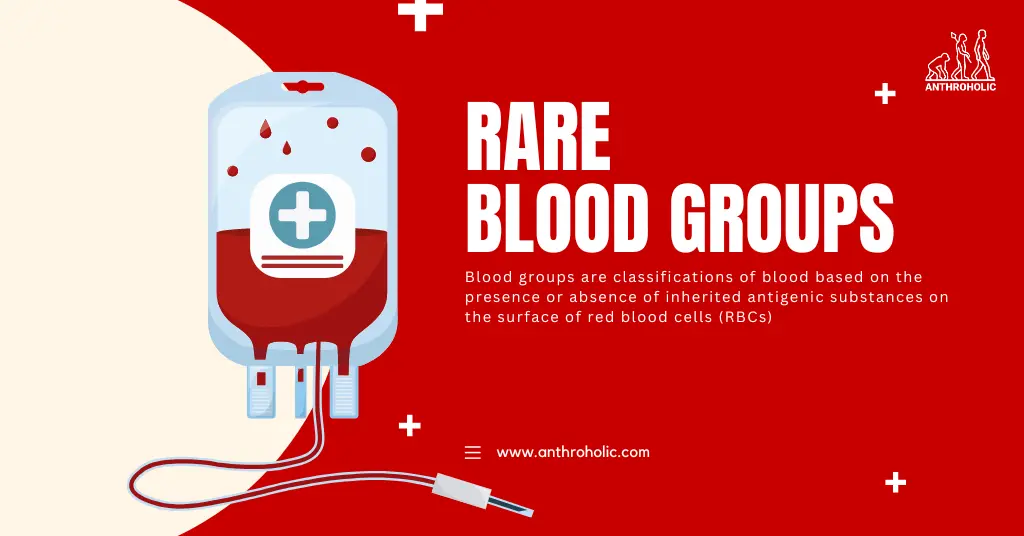AI Answer Evaluation Platform Live Now. Try Free Answer Evaluation Now
Rare Blood Group
In our bloodstream lies a vast world of tiny cells that have a profound impact on our health. While we commonly hear of the primary blood types A, B, AB, and O, there exist numerous rare blood groups that are less discussed but no less important.

What are Rare Blood Groups?
Rare blood groups, also known as ‘rare blood phenotypes’, refer to those blood groups that are not part of the ABO and Rh system, the two most commonly known systems [1]. To understand the rarity of these groups, we need to appreciate the complexity of the human blood type system.
Key Points:
- The human blood type system consists of 36 blood group systems identified by the International Society of Blood Transfusion (ISBT) as of 2021 [2].
- Apart from the ABO and Rh systems, there are other blood group systems like Kell, Duffy, Kidd, and MNS. Many of these contain rare blood groups [3].
- Rare blood types are found in less than 1 in 1,000 people. An example is the Rhnull phenotype, found in only about 43 people worldwide since its discovery in 1961 [4].
The Rare Blood Groups
Among the many unique blood types, there are some that stand out due to their extreme rarity. Here, we take a closer look at some of the rarest blood types known to science.
- Rhnull Blood Group: Also known as ‘Golden Blood’, this group lacks all Rh antigens. Discovered in 1961, it is present in about 43 people worldwide.
- Bombay Blood Group (hh): This group lacks antigens in the ABO system. It was first discovered in Bombay (now Mumbai), India, in 1952. It’s estimated to occur in 1 out of every 10,000 individuals in India and 1 in a million people in Europe.
- Duffy-null Blood Group: This group is characterized by the absence of Duffy antigens. It’s common in individuals of African descent and provides some resistance against malaria.
| Blood Group | Description | Prevalence |
|---|---|---|
| Rhnull | Lacks all Rh antigens | About 43 people worldwide |
| Bombay (hh) | Lacks ABO system antigens | 1 in 10,000 in India, 1 in a million in Europe |
| Duffy-null | Absence of Duffy antigens | Common in individuals of African descent |
Impact of Rare Blood Groups
The rarity of these blood types does not make them insignificant. On the contrary, they play vital roles in multiple domains of health and medicine.
Clinical Importance
- Transfusion Medicine: Safe blood transfusion relies heavily on compatible blood types. Transfusion with rare blood groups can potentially trigger adverse reactions, making them a crucial aspect of transfusion medicine.
- Pregnancy and Childbirth: Rare blood groups can complicate pregnancies. For instance, a condition called hemolytic disease of the newborn can occur if a mother with a rare blood type produces antibodies against her baby’s blood cells.
Genetic Research
Rare blood groups offer valuable insights for geneticists, as they are often associated with specific genetic mutations. By studying these groups, scientists can enhance our understanding of human genetics and hereditary diseases.
Challenges with Rare Blood Groups
While these unique blood types provide intriguing research opportunities, they also come with a set of challenges.
| Challenge | Description |
|---|---|
| Blood Supply | Ensuring a steady supply of rare blood types for transfusion purposes can be difficult. |
| Testing and Identification | Identifying rare blood types requires advanced serological testing, which may not be readily available in all medical facilities. |
| Research Limitations | Due to their rarity, there is a limited pool of individuals available for research studies. |
The Way Forward
To overcome these challenges, several strategies have been implemented worldwide. These include:
- Establishing Rare Blood Donor Registries: These registries connect donors with rare blood types to patients in need.
- Advancing Serological Testing Methods: Efforts are ongoing to make advanced serological testing more widely accessible.
- Promoting Genetic Research: Increased funding and promotion of genetic research can help unlock more mysteries behind these rare blood groups.
Conclusion
The world of rare blood groups is complex, intriguing, and crucial to human health. As we continue to explore this field, we’re likely to uncover even more fascinating facets of human biology. In the meantime, international collaboration and advances in medical technology are key to ensuring that individuals with rare blood groups can lead healthy, normal lives.
References
[1] American Association of Blood Banks. (2020). AABB Technical Manual.
[2] International Society of Blood Transfusion. (2021). ISBT Table of blood group antigens within systems. https://doi.org/10.1111/vox.13361
[3] Reid, M. E., & Lomas-Francis, C. (2004). The Blood Group Antigen FactsBook.
[4] Storry, J. R., & Castilho, L. (2019). International Rare Donor Panels: A review. Transfusion Medicine Reviews.




